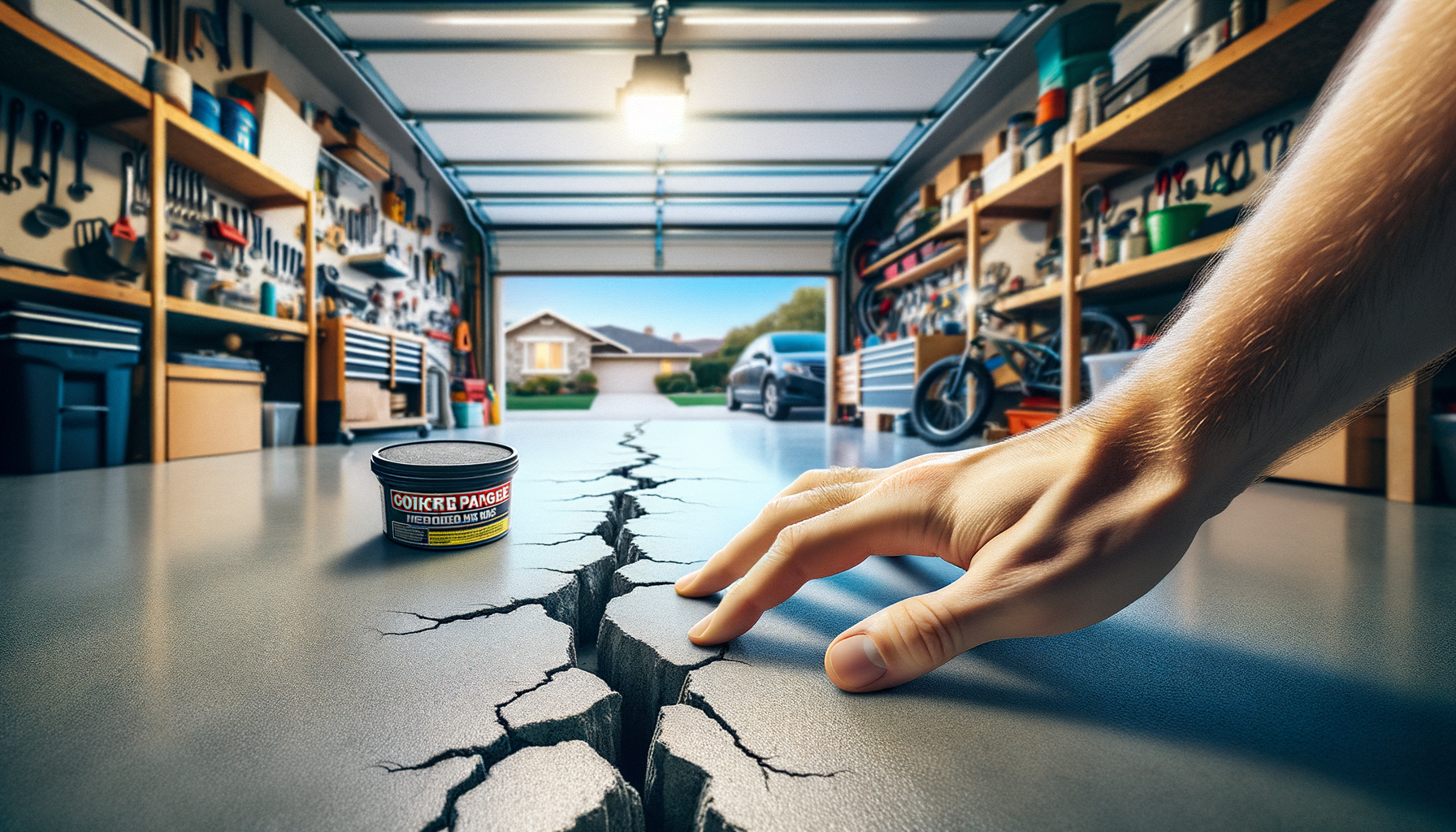Cracks in your garage floor are more than ugly lines. They can mean bigger problems, be dangerous, and lower the value of your home if you don’t fix them. Here’s a simple guide to help you understand and fix garage floor cracks.
What Causes Garage Floor Cracks?
- Natural Settling: As your home gets older, the soil under it can move. This can stress the concrete and cause cracks.
- Temperature Changes: Different seasons make the ground expand and shrink, which creates or worsens cracks.
- Bad Installation: Using bad materials or not pouring the concrete right can cause early cracks.
- Water Exposure: Too much water around or in your garage can weaken the concrete over time and cause cracks.
- Heavy Loads: Storing heavy equipment or parking large vehicles can stress your garage floor and cause cracking.
Types of Garage Floor Cracks
Knowing the types of cracks helps you understand how serious they are:
- Hairline Cracks: These are small and on the surface. They’re often just cosmetic but should be watched for changes.
- Shrinkage Cracks: These happen as the concrete dries. They’re usually harmless but may grow over time.
- Settlement Cracks: These cracks come from soil shifting under the slab and can mean bigger foundation problems.
- Structural Cracks: These are big and deep, showing serious problems that usually need a professional to fix.
Why You Shouldn’t Ignore Cracks
Ignoring cracks can lead to bigger problems:
- Water Infiltration: Cracks let moisture in, causing more damage and possible mold growth.
- Pests: Bugs and rodents can enter through these openings.
- Safety Hazards: Cracks can make the floor uneven and be a tripping hazard.
- More Damage: Small cracks can get bigger, leading to costlier repairs.
- Lower Resale Value: Visible damage can make your home harder to sell and reduce its value.
Inspecting Garage Floor Cracks
To inspect for cracks, follow these steps:
- Good Lighting: Ensure your garage is well-lit to see all cracks, even small ones.
- Clean the Floor: Remove dirt and debris to see better.
- Walk the Garage: Check for any cracks, big or small.
- Measure Cracks: Focus on the bigger ones to understand how severe they are.
- Check for Moisture: Look for wet spots, mold, or stains.
- Look for Uneven Areas: These can mean serious settling problems.
DIY Garage Floor Crack Repairs
For small cracks, try these DIY fixes:
- Concrete Patching: Use patching products from hardware stores for small cracks.
- Epoxy Injections: Good for deeper and wider cracks, filling and bonding them.
- Caulking: Ideal for hairline cracks to keep moisture out and stop further cracking.
- Surface Sealing: Applying sealant protects the floor from future cracks.
- Reinforcement: Adding carbon fiber or steel can strengthen the floor.
Professional Repair Options
For bigger cracks, you might need professional help:
- Mudjacking: Lifts and stabilizes the slab by injecting materials underneath.
- Polyurethane Injections: Foam injections fill spaces and stabilize the slab.
- Slab Replacement: For very serious cracks, replacing the entire slab might be needed.
- Concrete Resurfacing: Adds a new layer to improve looks and function.
- Foundation Assessment: Get a pro to check if there are bigger foundation problems.
Preventing Future Cracks
To stop future cracks, try these tips:
- Control Joints: These help manage where cracks form.
- Proper Drainage: Make sure water flows away from your garage to stop soil erosion.
- Insulated Doors: Help keep temperature changes moderate.
- Regular Maintenance: Check and fix cracks early to avoid bigger problems.
- Quality Installation: Use good materials and correct methods for any new work.
Key Takeaways
Regular checks and early fixes can save you from big garage floor problems. Knowing the types and causes of cracks helps you choose the best repair method. Prevention is key, and taking steps to stop cracks from forming can save you trouble later.
By fixing garage floor cracks, you keep your garage looking good and ensure the overall value and safety of your home.


Leave a Reply